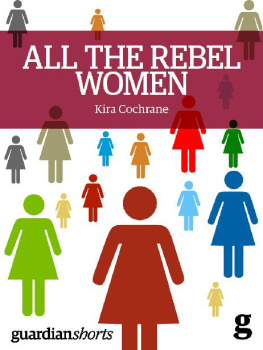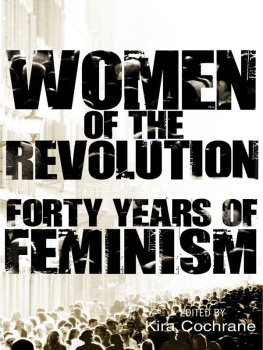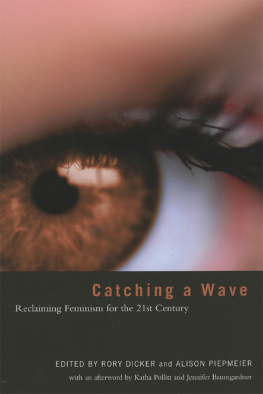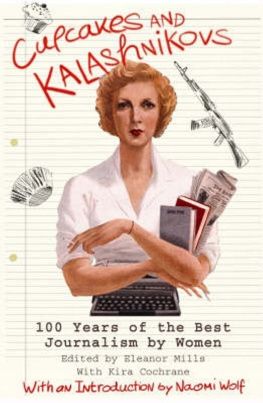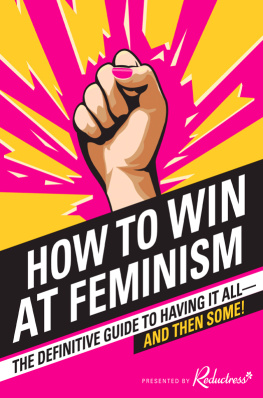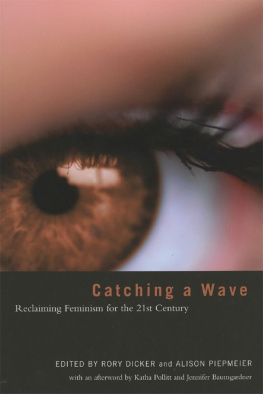to Alex Brewer
Contents
Chapter One
The fourth wave rises
One evening when Jinan Younis was 16, a man began following her around a sprawling, deserted shopping centre in Manchester. This turned into a chase. Every time she looked around, he was there, until she was running up escalators as fast as she could to get away. She finally escaped, but the experience was frightening, and she was struck by the unfairness, a man feeling he had a right to threaten her, to infringe on her freedom. Her anger rose when she told other people. Instead of responding sympathetically, their first question was often, why were you walking alone at night? She had always shrugged off the wolf whistles and catcalls, the daily chorus of street harassment. Now she reassessed.
On a trip to Cambridge with friends, a group of men shouted sexual comments at them from a car. Younis shouted back, determined to defend herself, and the men threw a cup of coffee over her. Later, she wrote about the way this had made her feel verbally and physically abused, helpless, as if shed done a disservice to all women by not standing up to them even more firmly, taking their number plate, reporting them to police. They had managed to make her feel low, inferior, basically shit, she says.
Rather than letting this incident rattle her more, she decided to set up a feminist group at school, to tackle the issues her peers were facing physically and emotionally abusive relationships, sexual pressures, body image worries, in some cases serious eating disorders. In autumn 2013, when we speak, shes juggling shifts at a call centre, babysitting for neighbours, preparing for university and her conversation is laced with determination, intellectual curiosity and sudden bursts of teenage laughter. Younis faced online abuse as a result of setting up her feminist society, but this hasnt deterred her any more than the shower of cold coffee did. At 18, she has just begun helping out with a campaign for feminist groups in schools across the country.
Lucy-Anne Holmes, a writer and actor, 37, had her eyes opened during the London Olympics in 2012. She felt she was in an equality bubble at the time, with womens achievements being celebrated as much as mens a big change from the usual balance of sports reporting, in which womens events are granted about the same coverage, its been said, as mens darts. On a day of triumph for British women, she bought a copy of the Sun , started reading their coverage of Jessica Ennis and other brilliant athletes, and was pleased that Page Three seemed to have been dropped. Holmes has an optimistic manner, the sort of upbeat outlook that aims to see the best in people. She leafed through the paper happily, until she arrived at page 13 (unlucky for some). There it was. The biggest image of a woman in Britains biggest-selling newspaper was a young model in her pants as it is every week day.
Holmes started thinking about how Page Three had made her feel when she was growing up. How her older brother and his friends would bring the paper home, sit around talking about the models, and she had begun to assume that her breasts were there to be looked at and that they fell some way short of the ideal. She composed a long letter to the editor of the Sun , continuing deep into the night, falling asleep, waking to scribble new points, eight arguments reeling out over three pages. She asked why women were being shown primarily as objects for mens sexual pleasure when rape and sexual assault are so common; why it is acceptable to show teenage breasts on Page Three, yet women are made to feel uncomfortable about breastfeeding in public. When the letter was written, she knew it wouldnt be enough. So she set up a campaign against Page Three, a feature first introduced in 1970, just as a previous generation of feminists was rising.
Nimko Ali, 29, has identified as a feminist for years, but it wasnt until 2011 that she started speaking openly about her own experience of violence. When she was seven, her family took her on a trip to Somalia from her home in Manchester, where she was forced to undergo type three female genital mutilation the most severe form. She started campaigning on international womens issues in her late teens, went to university, became a bit of a hippy, she says, then joined the civil service, worked in child protection, and continued to study. Ali has an unstoppable demeanour. A witty, fizzy, funny woman, she moves at breakneck speed between talk of the fanny forward list she keeps of supporters, to the death threats shes received over the years.
One day in 2007, while living in Bristol, she was asked to speak to a group of teenage girls from Somali backgrounds at a local school. They wanted to discuss female genital mutilation (FGM), which surprised her when she asked how many had experienced this, 13 out of 14 raised their hands. Ali was horrified, upset, and began working to address the issue. In 2010, along with two other survivors, she set up Daughters of Eve, a group dedicated to campaigning against FGM and supporting women, physically and psychologically. But she was still talking about the subject in the third person.
This changed when she met a woman who had undergone type three mutilation, suffered relationship and mental health problems, and then been sectioned. The woman looked to her for reassurance, without realising they had FGM in common. While comforting her during a panic attack one day, Ali decided she had to start telling her own story. Her silence suddenly felt complicit with a culture that doubts the strength and intelligence of women survivors, and so she began speaking out, at considerable personal risk. In the weeks and months after she went public, some men attempted to run her over, and she heard that an offer had been made to kill her in exchange for 500. She kept campaigning anyway, loudly, fearlessly, emphatically.
Everywhere you looked in the summer of 2013, a fourth wave of feminism was rising in the UK, women were opening their eyes to misogyny and sexism, and shouting back against it. Laura Bates, 27, founder of the Everyday Sexism Project, was campaigning with US-based activists Soraya Chemaly and Jaclyn Friedman against misogynist content on Facebook groups with names such as raping a pregnant bitch and telling your friends you had a threesome. More than 60,000 tweets were sent by their supporters in the course of an astonishingly swift and successful week-long campaign.
Caroline Criado-Perez, 29, was leading a triumphant drive to keep a woman of achievement on British banknotes, she and her supporters marching outside the Bank of England in early July to the chant of Notes for Women. It was the first burst of a heatwave, and they came dressed as a league of extraordinary women George Eliot sweltering in her velvet suit, Radclyffe Hall dapper in a fedora and sunglasses, Boadicea brandishing a sword and shield. I asked aviator, Amy Johnson actually equality lawyer, Emma Dixon, boiling away in a bomber jacket why she had come. She said she didnt want to be part of an oppressed majority.
Criado-Perezs campaign opened up a wider conversation about womens representation, in a country where women can now be said to represent the 22% in public life 22% of MPs, 22% of peers, 22% of judges, 22% of bylines on the front pages of national newspapers, our progress stalled at a paltry, token, one in five public voices. In the wake of her win, Criado-Perez went on to draw attention to the rape threats being used to silence women online, when a tranche was sent to her on Twitter.
Outside the Sun headquarters, Yas Necati, 17, was holding No More Page Three demonstrations, then sending ideas for anarchic alternatives to Sun editor David Dinsmore a stream of feminist artists, writers and comedians who could appear on the page instead. She laughed as she told me shyly, over a cheese sandwich, of her tetchy Twitter exchanges with Dinsmore. She also set up the Campaign4Consent with Lili Evans, 15, in their school summer holidays. This calls for teaching about sexual consent to be on the curriculum, and could hardly be more timely. Statistics published in January 2013, found an estimated 400,000 women in England and Wales are victims of sexual offences each year, including around 69,000 who are raped. Nearly one in five women have been the victim of a sexual offence since they were 16.


